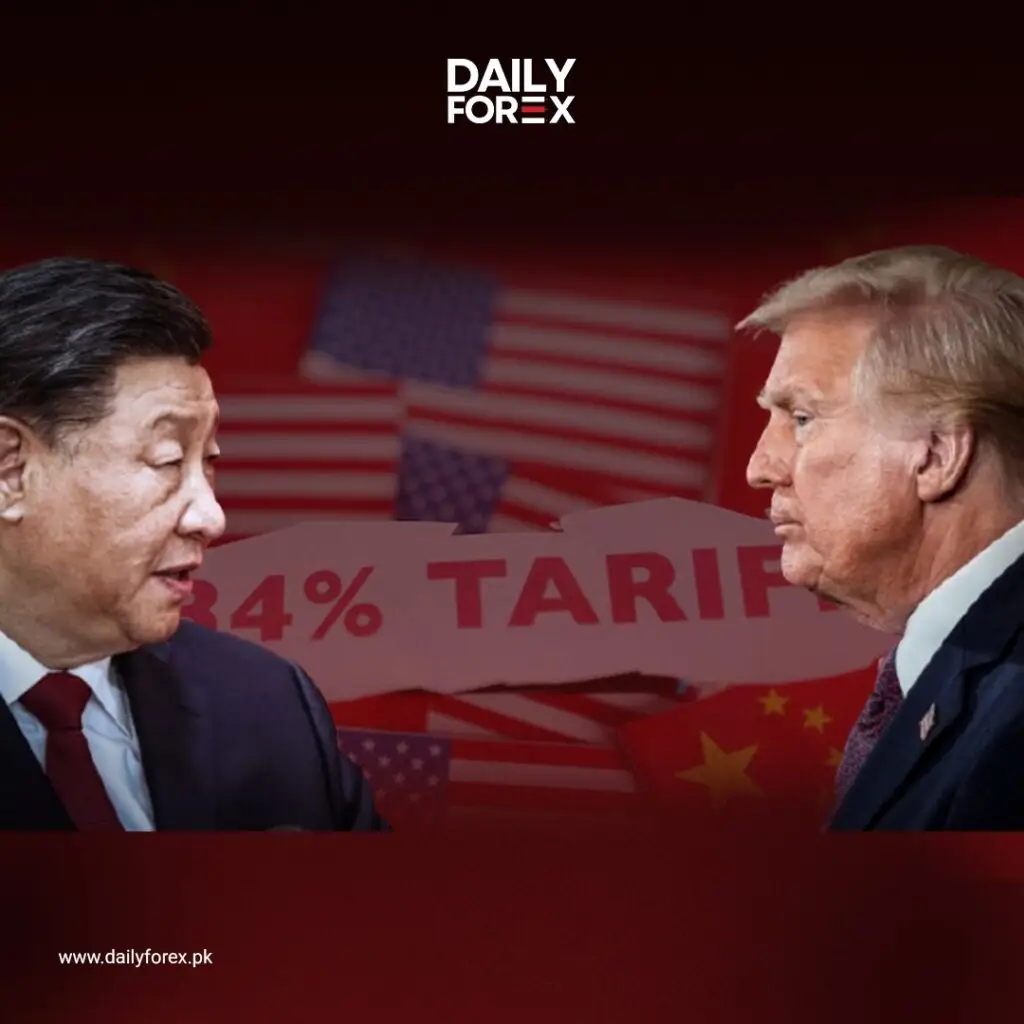Asian stock markets fell sharply on Friday, with Japan’s Nikkei 225 plunging by 5%, leading a region-wide sell-off fueled by renewed US-China trade war tensions. Despite a temporary boost earlier this week from US President Donald Trump’s 90-day suspension of certain tariffs, fresh escalations in the tariff standoff sent shockwaves across global markets.
Tokyo Stocks Hit Hard as Export Fears Mount
Japan bore the brunt of Friday’s downturn. The Nikkei 225 tumbled 5%, followed closely by a 5% drop in the TOPIX index, as investors offloaded shares in trade-sensitive sectors such as automotive and electronics. Japan’s significant trade reliance on both the US and China made it particularly vulnerable to the deteriorating economic landscape.
Though Trump postponed a 24% tariff on Japanese imports, new baseline tariffs of 10% and a 25% auto levy still hang over Japan’s export-reliant economy. Citi analysts lowered Japan’s 2025 GDP outlook and now expect the Bank of Japan to delay its next rate hike until March 2026.
China Markets More Resilient Amid State Support
While tensions escalated, mainland Chinese stocks fared better, with the CSI 300 slipping just 0.6% and the Shanghai Composite down only 0.2%. Analysts attribute the relative stability to state-backed institutional buying, as Beijing’s “national team” stepped in to support local equities.
China also announced fresh stimulus plans, signaling efforts to shield its economy from the blow of new US tariffs totaling 145%, which came into effect Thursday. However, retaliatory tariffs of 84% on US goods also took hold, with Beijing showing no signs of backing down.
Asia-Pacific Indexes Follow Negative Trend
Markets across the Asia-Pacific mirrored the pessimistic mood:
- Hong Kong’s Hang Seng Index dipped 0.5%
- Singapore’s Straits Times Index slumped 2.1%
- Australia’s ASX 200 dropped 1.3%
- South Korea’s KOSPI declined 1.3%
- Indian Nifty 50 futures pointed to a lower open
The short-lived optimism following Trump’s tariff suspension quickly evaporated. Wall Street futures also turned negative during Asian trading, with S&P 500 futures slipping 0.8%, reflecting renewed global risk aversion.
Outlook: Fragile Sentiment Amid Trade Turmoil
While Japan may avoid a recession this year thanks to robust consumer spending and rising wages, trade-related headwinds are clouding the outlook. Weaker-than-expected Chinese inflation data earlier this week further highlighted the challenges for Beijing’s policymakers.
With both Washington and Beijing digging in for a prolonged confrontation, investors remain wary, awaiting any signs of a diplomatic breakthrough. Until then, volatility is likely to persist across equity markets worldwide.
Stay Updated with Daily Forex Pakistan.




